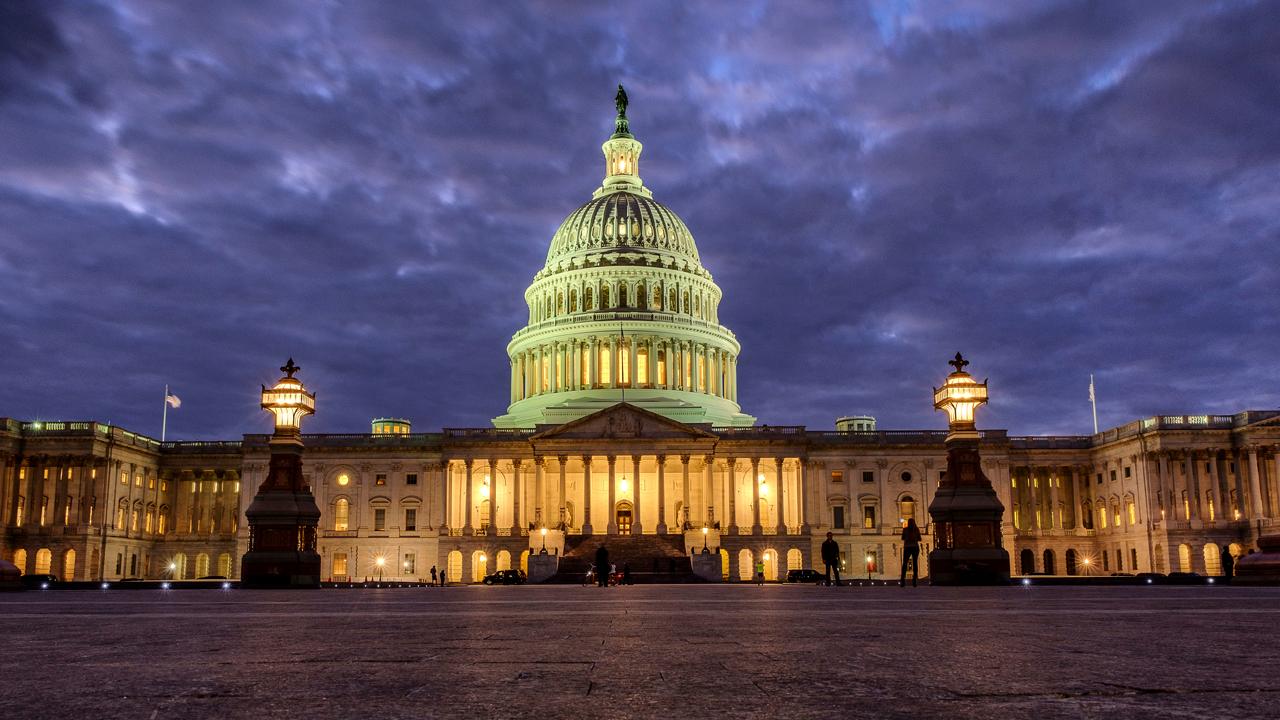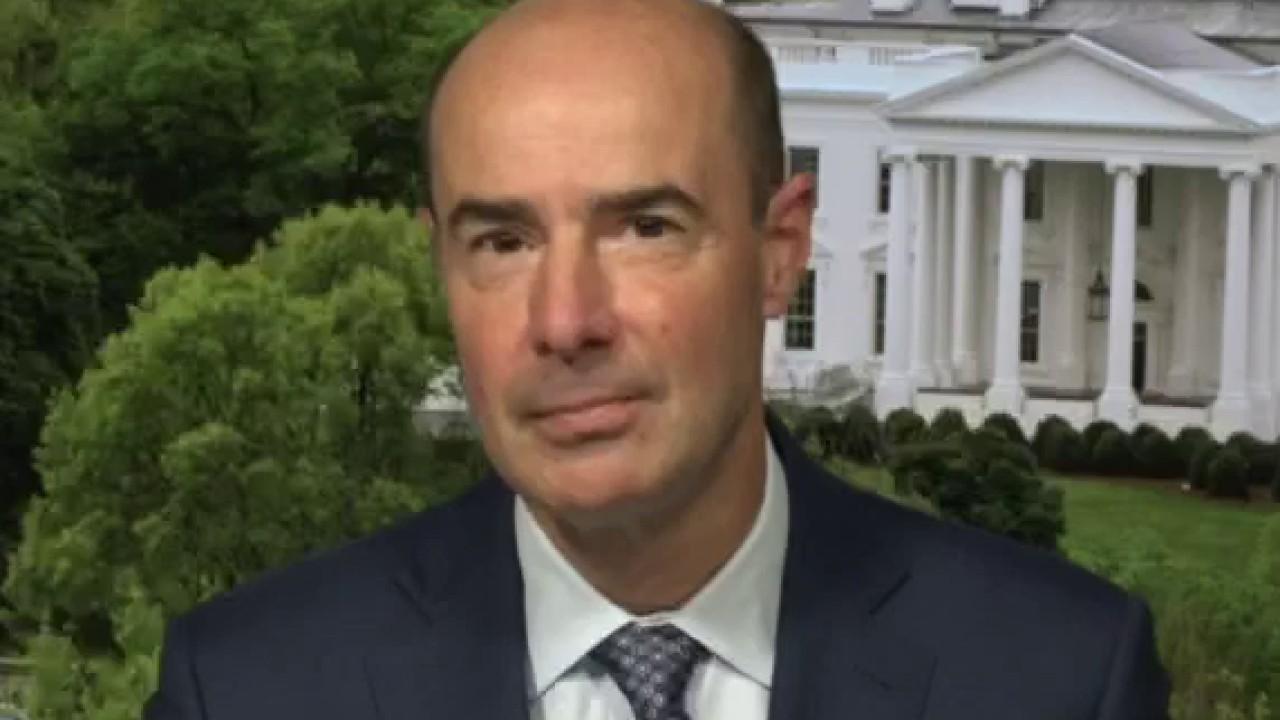The Pandemic Unemployment Assistance program is ripe for abuse, Congress must act as our debt piles up
We have been spending -- and overspending -- like there is no tomorrow.
With the Congressional Budget Office recently reporting that our nation’s annual budget deficit for fiscal 2020 will hit $3.3 trillion, the largest deficit since World War II, this is a good time to re-examine some of the programs that got us here.
One obvious candidate is the Pandemic Unemployment Assistance program (PUA) which the Office of the Inspector General (OIG) called out in May for being “highly vulnerable to improper payments and fraud.” The program’s future is one of the sticking points between the administration and the Democrats in their current effort to negotiate a second stimulus deal.
US DEFICIT COULD HIT $3.3T IN 2020, AMPLIFIED BY CORONAVIRUS RELIEF SPENDING: CBO
As part of the CARES Act, the PUA is a bipartisan effort to ensure that Americans who lose their jobs for COVID-19 related reasons can survive economically.
It is an unprecedented program that provides weekly unemployment checks to people normally ineligible for traditional state unemployment insurance benefits (UI) such as the self-employed, independent contractors, people with limited work histories or seeking part-time work and those who have exhausted other sources for unemployment benefits.
The PUA is growing in importance. For the first week of May, there were 22.7 million continued claims for traditional UI benefits and 7.8 million for PUA benefits.
By the second week of August (the most recent date for which we have the data), the number of continued claims declined to 13.1 million for UI but increased to 14.6 million for PUA. While PUA numbers can fluctuate due to backlogged claims, the program appears to have surpassed traditional UI in size.
Recipients are eligible for 39 weeks of PUA benefits equal to the state’s UI benefits -- with a minimum benefit equal to half the state’s average weekly UI benefit. In April, the Congressional Budget Office (CBO) estimated that the average weekly PUA benefit would be $238.
TRUMP WANTS RELIEF MONEY FOR JOBS, KIDS; DEMOCRATS DON’T WANT TO NEGOTIATE: MNUCHIN
Recipients were additionally eligible for $600 in weekly federal benefits until those benefits expired at the end of July. They are now eligible for the additional $300 in weekly federal benefits President Trump authorized, or $400 in states that add in the optional $100.
Given PUA’s growth, the potential for fraud has also increased. To establish PUA eligibility the CARES Act requires only that individuals self-certify that they have lost employment income due to one of the COVID-19 related reasons set forth in the statute. Upon self-certification, individuals are immediately eligible to receive PUA benefit payments.
As the OIG pointed out, the Disaster Unemployment Assistance program (DUA), upon which Congress modeled the PUA, also permits individuals to immediately collect benefits upon self-certification but has a second step which disqualifies recipients who fail to submit evidence of employment within three weeks.
The OIG, warned that, “a state’s reliance on self-certifications alone to ensure eligibility for PUA will lead to increased improper payments and fraud.”
GET FOX BUSINESS ON THE GO BY CLICKING HERE
But the problems with PUA go beyond its susceptibility to fraud. Even permissible claims create opportunities to game the system. Unlike DUA, the PUA fails to require that a benefit recipient’s lost income relates to his principal source of income.
For example, an individual with a full-time job who is teleworking but drives an Uber on the weekends for extra cash (say 10% of his income) can claim the loss of his part-time job and collect full PUA benefits (the minimum benefit plus the $300 or $400 weekly federal benefit) while continuing to work his full-time teleworking job. As currently drafted, the money is just there for the taking.
A Republican bill pending in the Senate would address both issues. It would add that second step disqualifying recipients who fail to submit substantiating evidence of employment. It also would require that recipients certify that any lost income relates to their “principal source of income.”
On the other hand, the HEROES Act, passed by the House of Representatives, would continue the PUA unchanged and extend it until as late as March 2021. Given the potential for fraud and PUA’s susceptibility to gamesmanship, failing to amend it, let alone extending it, would be a blatant act of fiscal irresponsibility.
In May, the OIG warned that keeping the PUA in its current form would likely result in the “loss of millions of taxpayer dollars.” But in April the CBO estimated that only 5 million people would claim PUA benefits at a cost of $35 billion. As PUA now has 14.6 million continued claims, the OIG’s May estimate is likely understated.
Through September 5th, PUA had already paid out over $47 billion in benefits, not including the additional $600 (now a least $300) weekly federal bonus totaling an estimated $90 billion more through July. Matt Weidinger of the American Enterprise Institute has offered an “overly conservative” estimate that “at least $13 billion” has been lost already to PUA program fraud.
While Congress and the Trump administration understandably acted quickly and decisively to address the pandemic’s economic impact on American families, we have been spending -- and overspending -- like there is no tomorrow.
Amending the PUA to address the potential for abuse would be at least one clear indication that our political leaders understand there is a tomorrow and our debts will come due.
Andy Puzder was chief executive officer of CKE Restaurants for more than 16 years, following a career as an attorney. He is currently a Senior Fellow at the Pepperdine University School of Public Policy. He was nominated by President Trump to serve as U.S. labor secretary. In 2018, Puzder authored "The Capitalist Comeback: The Trump Boom and the Left's Plot to Stop It" (Center Street). His latest piece, a Broadside by Encounter Books titled, “Getting America Back to Work” was released on April 28, 2020.





















